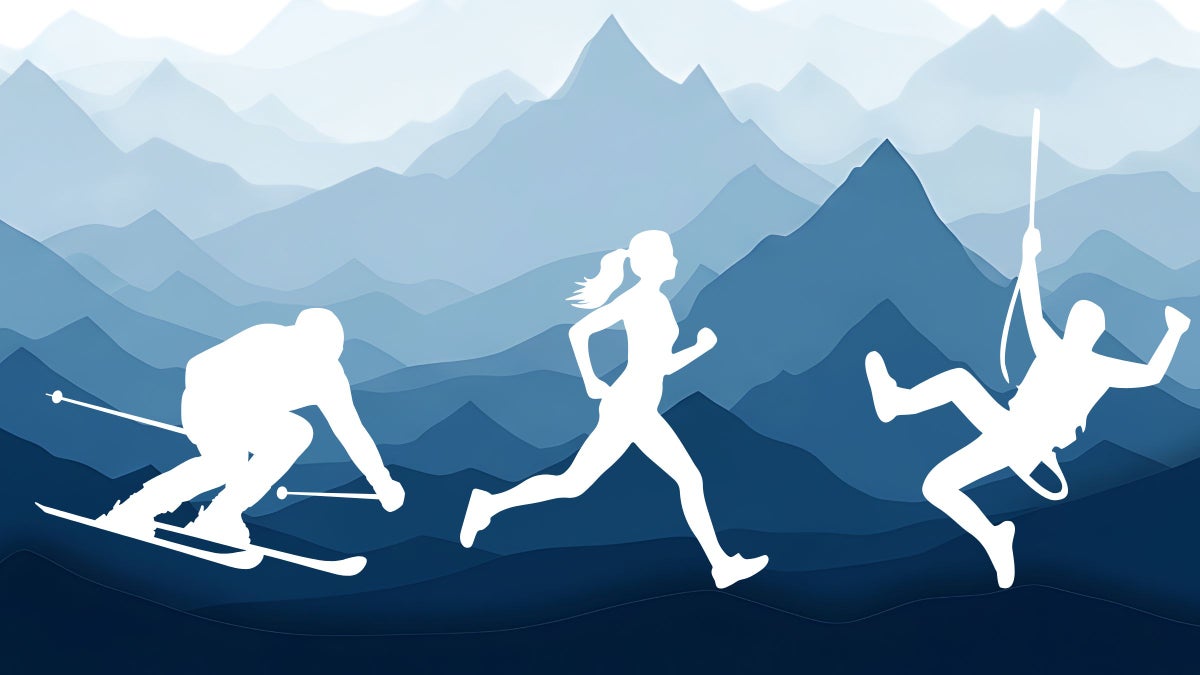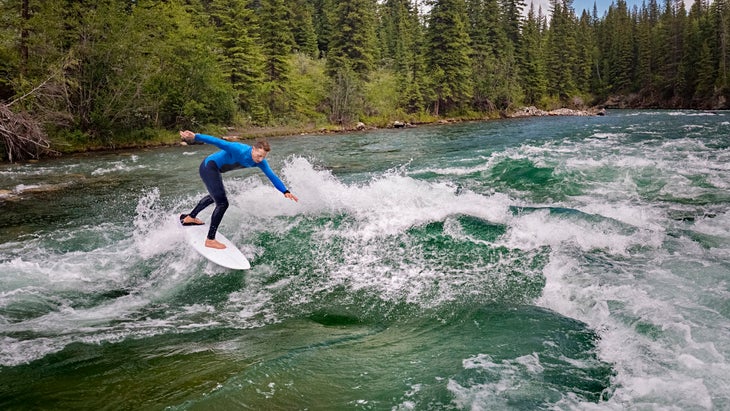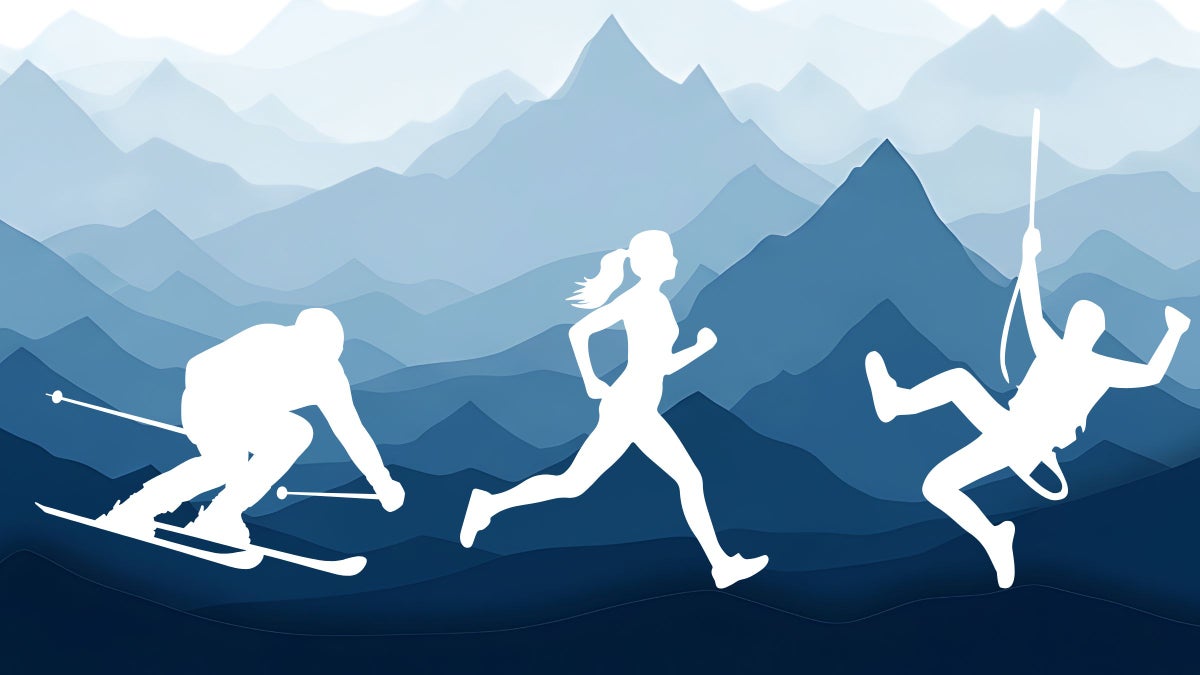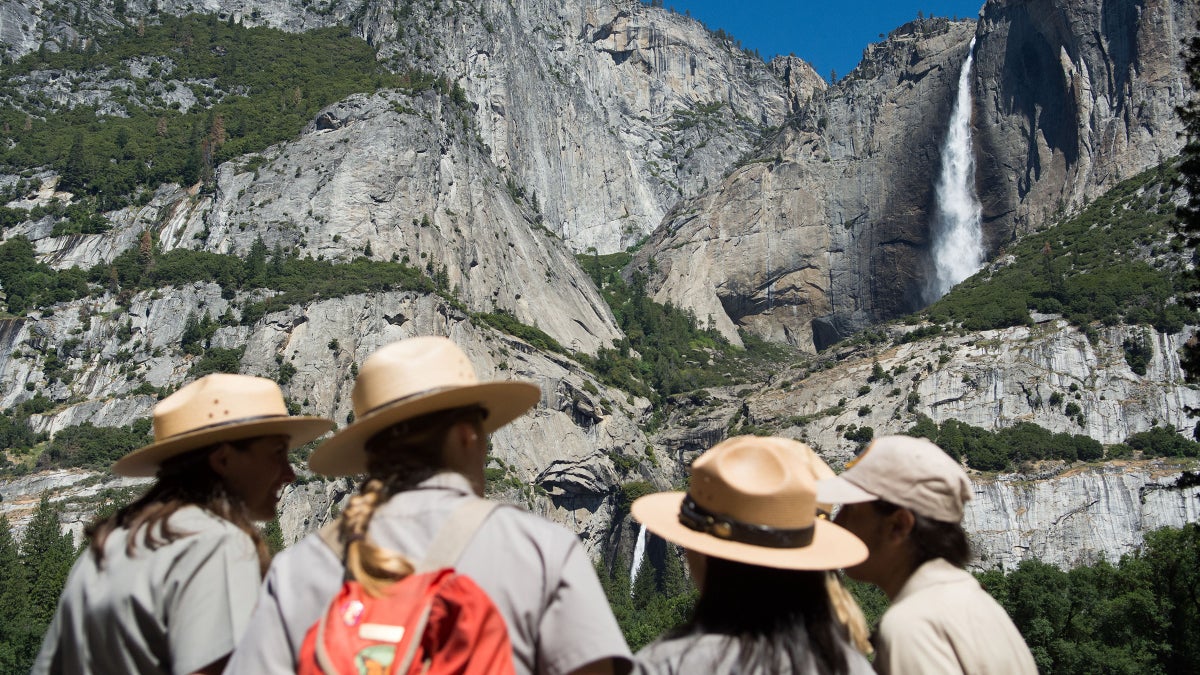
To surf Dessert, a standing wave in the middle of the Ottawa River, one must paddle a quarter mile from shore, drift down to a set of rapids, line up the approach perfectly, pivot at just the right moment, and with a burst of power strokes either slide onto the shoulder or catch the foam pile. If you miss the wave, wipe out, or get flushed, it can take half an hour to try again, starting with a cross-current slog back to shore and a long hike upstream—in my case, lugging a SUP and stewing over what went wrong. Which I did dozens of times over the past few years. Which kind of sucks.
Proficient at riding a much more accessible but short-lived wave that only works when the river is surging with snowmelt, I sought the same feeling on Dessert. With absolutely zero success. This made me wonder why some of us spend countless hours learning how to ski or bike down mountains, or scrambling back onto paddleboards while dodging rocks in the rapids. Outdoor enthusiasts tend to be meticulous planners, not daredevils, according to Australian adventure psychologist Eric Brymer. So, what exactly are we craving?
Our Brains Like the Challenge
As exasperating as those attempts at Dessert were, the effort itself was probably part of the appeal. Evolutionarily, we’re programmed to follow the path of least resistance, but in modern urban lives, easy often begets boredom. If it’s a struggle to do something, the outcome can be more rewarding. “Outdoor adventure can feel good precisely because it’s hard,” says psychology researcher Michael Inzlicht, who runs the University of Toronto’s Work and Play Lab. “Despite these oversized brains, we’re still embodied creatures.”
Yet what if there doesn’t seem to be much ROI from all that floundering? So many swims at Dessert, a couple seconds of surfing. My progress may have been imperceptible, but each wipeout made me slightly less bad, suggests Inzlicht. To him, this is an example of “effortful leisure,” which can be a source of deeper meaning and purpose—or what he calls “eudaimonic wellbeing”—that hobbies such as binge-watching Naked and Afraid don’t deliver.
“Outdoor adventure can feel good precisely because it’s hard.”
Inzlicht was right, because this past summer, I finally began to figure out the wave. I locked in during the approach, kept my balance while turning, and committed to digging in with my blade. My rides were fleeting and butterflies set up camp in my stomach, but I had an inexorable urge to drive through rush-hour traffic to the put-in every day after work.
Unfragmented Consciousness
To understand what was brewing inside my head, as a water-logged proxy for what extreme athletes feel, I contacted Susan Houge Mackenzie, who moved to New Zealand from California in her early twenties and became a wilderness guide, leading clients on river surfing trips with bodyboards and fins. (Or as she describes it: rafting without the raft.) “There’s a tension between anxiety and excitement when you’re getting close to the wave,” says Mackenzie, now a sport psychology researcher at New Zealand’s University of Otago. “During activities like this, we’re almost always flipping back and forth.”
Fluctuating between these telic and paratelic states is common in whitewater. In the former, people are serious, goal-oriented, and arousal avoidant; in the latter, we’re playful, spontaneous, and game for a thrill. Individual personalities differ, but the multiphasic nature of these types of pursuits, plus a dash of fear, could be “a precursor to optimal experiences,” says Mackenzie. What’s more, the trajectory of emotions people typically go through while river surfing, from nervous anticipation to stimulation, relief, confidence, peace, and a sense of accomplishment, is derived from the ability to display expertise in a challenging situation and the creativity we feel while immersed in the activity—a buzz that persists long after we’re off the water.
“The skills required to navigate rapids,” Mackenzie says, “help you tune out other aspects of your life and focus on what’s right in front of you.” Circa 2025, this “unfragmented consciousness” is rare and precious.

Even though she’s 9,000 miles away, it’s like Mackenzie is peering into my skull. In mid-August, on my birthday, I picked up an oversized sandwich at an Italian deli and spent the day at Dessert (named thusly, I’ve been told, because it’s a treat to be consumed after Ottawa’s spring surfing season is finished). On my second attempt, I paddled out, pivoted, and slid into a supersensory harmony. I was in synch with the wave, shifting my weight slightly and stepping back and forth to carve and glide on its short, steep face. My body seemed to move on its own—flying, floating—as if powered by the river, roaring over a limestone shelf toward the sea.
Later, sitting in the shade to eat that sandwich, all of my worries had evaporated. Problems morphed into possibilities. Small stuff was not sweated.
Flow State
Researcher Eric Bryner, from Australia’s Southern Cross University, tells me this wasn’t a cognitive leap. Looking at outdoor sports through the lens of ecological psychology, which revolves around the relationship between humans and the physical environment, he says that when we’re “dancing with nature,” we’re scanning and exploring with our bodies, trying to make sense of the world. Surfing is not necessarily an augmented process in the brain; distance and time might be directly perceived, catalyzing our rapid-fire actions. In this context, emotions we label as fear or anxiety are not negative, simply information to absorb as our bodies wobble and bounce and settle into energized focus. Basically: flow.
We’re on top of the world during and après surf, Bryner suggests, because activities like this, surrendering to the moment, failing and grinding, playing at the edge of our comfort zones in dynamic outdoor environments, are “a fundamental way to be human.” They shut down cognitive chatter, our haptic senses fully alive.
I confess to Byrner that I can’t stop thinking about river surfing. “Tiger in a cage,” he replies.
Confined in an artificial space, a tiger feels suppressed, unwell. Bogged down in cities and cubicles, that’s us. “Essentially, we’re locking ourselves in a cage,” Bryner says. “Some of us don’t realize there’s a door, and even if we see it, a lot of us are afraid to open it. But if you open it and step outside, you’re where human beings feel most at home.
“We call this adventure,” he continues, “but really, it should be considered normal.”
The post The Psychology Behind Why Outdoor Sports Are So Much Fun appeared first on Outside Online.














